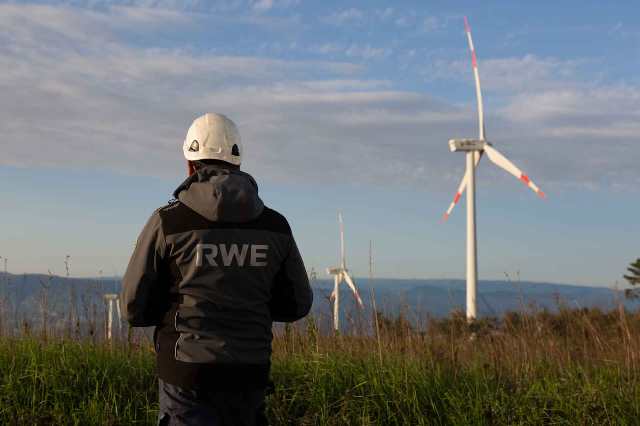RWE has extended the contract of Dr. Markus Krebber as Chief Executive Officer for an additional five years, securing his leadership until June 30, 2031.
Markus Krebber, who joined the RWE Group in 2012 and became CEO in 2021 after serving on the Executive Board since 2016, will continue to guide the company through a transformative period in the global energy sector.
Frank Appel, Chairman of the Supervisory Board, praised Krebber’s leadership: “Markus Krebber has resolutely positioned RWE for the future energy landscape. With his strategic vision, RWE is ideally placed to capitalize on rising electricity demand and electrification. He has navigated the company through geopolitical challenges and played a key role in overcoming the energy crisis, ensuring RWE’s continued leadership in the energy transition.”
Michael Vassiliadis, Deputy Chairman of the Supervisory Board, highlighted Krebber’s commitment to RWE’s workforce: “The employee representatives strongly support this extension. Markus Krebber recognizes that our employees are the cornerstone of RWE’s success, fostering a culture of trust and collaboration even in times of change.”
Markus Krebber stated: “I am honored by this trust and look forward to working with the Executive Board and RWE’s exceptional team to maintain our trajectory as a reliable partner for secure, affordable, and sustainable energy. The era of electrification and artificial intelligence presents significant opportunities for profitable growth and sustainable value creation at RWE.”
RWE achievements
Under Krebber’s leadership, RWE has solidified its position as a global leader in renewable energy, significantly advancing its “Growing Green” strategy launched in 2021. This ambitious plan targets €55 billion in investments by 2030, focusing on clean technologies such as offshore and onshore wind, solar energy, batteries, hydrogen projects, and decarbonized flexible power generation. Key achievements include:
Expansion of Renewable Capacity: RWE has increased its renewable energy capacity to 36.2 GW, with an additional 11.2 GW under construction as of 2024. The company aims to nearly double its green portfolio to over 65 GW by 2030, supported by a project pipeline exceeding 100 GW. In 2024 alone, RWE invested €6.9 billion in offshore wind and solar projects across Europe and the U.S., boosting renewable energy production by 14 percent to a record 36 TWh in the first nine months, while reducing CO₂ emissions by 21 percent compared to 2023.
Strategic Acquisitions: In 2022, RWE acquired Con Edison’s Clean Energy Business, making it the second-largest solar operator in the U.S. and the fourth-largest renewable energy company in the country. This acquisition nearly doubled RWE’s U.S. asset base in onshore wind, solar, and batteries, enhancing its development pipeline for sustainable investments.
Coal Phase-Out Acceleration: RWE has committed to phasing out coal by 2030, eight years ahead of its original 2038 target, aligning with the 1.5-degree reduction pathway. This includes shutting down coal-fired power plants and transitioning employees to roles in renewables, land restoration, or other sectors, with no anticipated job losses.
Global Market Expansion: RWE has strengthened its presence in core markets, including Germany, the U.S., the U.K., and selected Asia-Pacific countries like Japan, South Korea, and Australia. Notable projects include successful bids in offshore wind auctions in the U.S. (New York Bight) and Europe, adding 4.6 GW to its U.S. offshore wind portfolio.
Hydrogen and Storage Innovation: RWE is advancing the hydrogen economy with projects like hydrogen-ready gas-fired power plants and partnerships, such as with Equinor for hydrogen supply from Norway to Germany. The company is also investing in battery storage to address renewable energy intermittency, with batteries becoming a profitable business in Europe and the U.S. due to daily power price fluctuations.
Financial Performance: Under Krebber’s leadership, RWE achieved an adjusted EBITDA of €4.0 billion and an adjusted net income of €1.6 billion in the first nine months of 2024, driven by increased renewable energy production and strategic investments.
Community and Environmental Impact: RWE has prioritized community engagement, channeling benefits back to local communities in the U.S. and Europe. Projects like the Kaskasi offshore wind farm include biodiversity monitoring initiatives, and in Germany’s Rhine region, renewable projects have preserved villages from demolition and improved air quality through coal plant closures.
These achievements underscore RWE’s transformation from a coal-based utility to a leader in clean energy, with a robust technological and regional portfolio positioned to meet the demands of an electrified future. Despite challenges like U.S. offshore wind permitting delays and Europe’s slower hydrogen economy progress, RWE remains on track to achieve net-zero emissions by 2040.
GreentechLead.com News Desk

